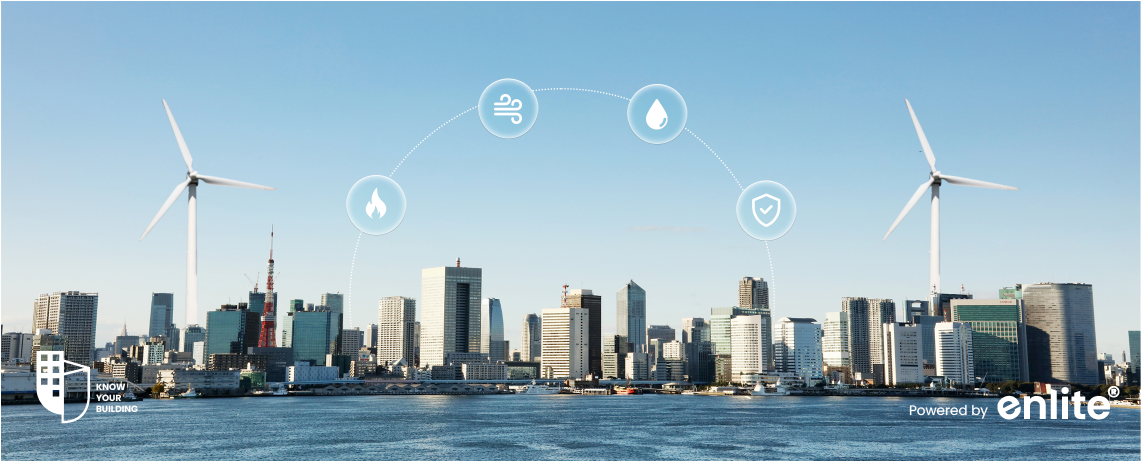Introduction
With the increasing emphasis on sustainability and energy efficiency, businesses and facility managers are turning to Building Management Systems (BMS) integrated with renewable energy sources. A BMS optimizes energy consumption, making it the perfect solution for managing power generated from solar panels, wind turbines, and geothermal energy. By leveraging smart automation, organizations can reduce their carbon footprint, lower operational costs, and create a more resilient energy infrastructure.
Why Integrate BMS with Renewable Energy?
Modern buildings consume vast amounts of energy, making sustainability a critical factor in their management. By integrating BMS with renewable energy, businesses can:
- Enhance energy efficiency by dynamically adjusting consumption
- Reduce dependency on fossil fuels, lowering emissions
- Improve cost savings through optimized energy distribution
- Increase energy resilience by ensuring backup power during grid failures
- Meet regulatory and green building certification requirements
Key Benefits of BMS and Renewable Energy Integration
1. Optimized Energy Consumption
A BMS intelligently manages energy loads by prioritizing the use of renewable energy sources before drawing power from the grid. It can allocate energy where it’s needed most and store excess power in battery storage systems.
Benefits:
- Efficient use of solar and wind energy
- Lower electricity bills and reduced peak demand charges
- Smart scheduling of power-intensive tasks during optimal energy generation periods
2. Real-Time Energy Monitoring and Control
BMS provides real-time data on energy production, consumption, and storage. It enables facility managers to analyze performance metrics and make informed decisions on energy use.
Benefits:
- Better insights into energy consumption patterns
- Predictive analytics for demand forecasting
- Reduced energy wastage through automated adjustments
3. Seamless Grid Integration
A BMS can seamlessly switch between renewable energy and the power grid when necessary. During peak hours, it can prioritize stored renewable energy, reducing strain on traditional power infrastructure.
Benefits:
- Reliable energy availability with automatic switching
- Protection against power outages and grid failures
- Lower dependency on expensive peak-hour electricity
4. Lower Carbon Footprint
By incorporating renewable energy, buildings significantly reduce their greenhouse gas emissions. A smart BMS ensures that every unit of clean energy is utilized efficiently, minimizing environmental impact.
Benefits:
- Compliance with sustainability regulations
- Contribution to corporate social responsibility (CSR) goals
- Improved brand reputation for eco-conscious businesses
5. Cost Savings and ROI Improvement
While the initial investment in renewable energy infrastructure can be high, BMS integration accelerates return on investment (ROI) by maximizing efficiency and reducing operational costs.
Benefits:
- Reduced energy bills through intelligent power management
- Optimized use of solar panels, wind turbines, and energy storage
- Potential tax benefits and incentives for green buildings
6. Enhanced Battery Storage Utilization
BMS efficiently manages battery storage systems, ensuring that excess renewable energy is stored for later use. This is particularly useful for buildings that rely on solar or wind energy, which may not always be available.
Benefits:
- Better management of renewable energy fluctuations
- Increased building energy resilience
- Backup power availability during emergencies
7. Automation and Smart Scheduling
BMS automates HVAC systems, lighting, and other building operations based on energy availability. For instance, it can schedule heating or cooling to run when renewable energy supply is high, ensuring energy-efficient operations.
Benefits:
- Minimized reliance on non-renewable energy
- Smart automation for greater convenience and efficiency
- Increased lifespan of building assets through optimized usage
The Future of BMS and Renewable Energy Integration
With advances in AI, BMS is becoming more intelligent, predicting energy needs and adjusting consumption in real time. Future trends include:
- AI-driven energy optimization for real-time load balancing
- Blockchain-powered energy trading, allowing buildings to sell excess renewable energy
- IoT-enabled microgrids, creating decentralized and more resilient energy ecosystems
Final Thoughts
Integrating Building Management Systems (BMS) with renewable energy is a game-changer for sustainable and cost-effective building operations. By leveraging solar, wind, and geothermal energy, organizations can significantly reduce energy costs while advancing their sustainability goals.
Looking for a smarter, greener building solution? Know Your Building’s cloud-native BMS seamlessly integrates with renewable energy systems to














